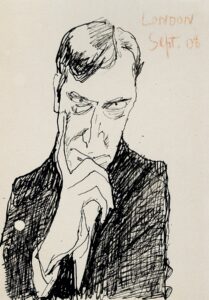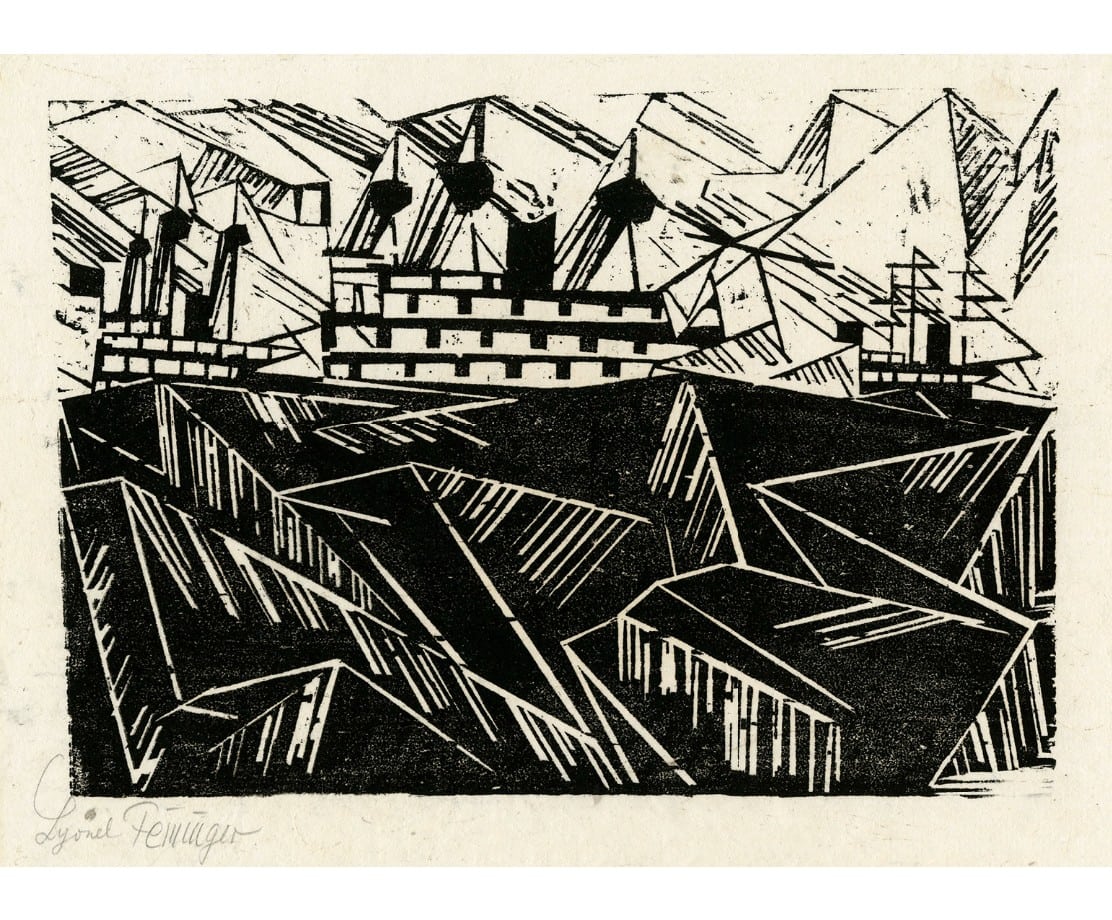FEININGER, Lyonel
 Lyonel Feininger was an artist in the truest sense of the word, trying his hand at a variety of mediums throughout his life. Born in New York, he traveled to Germany as a youth and studied at various art schools. He began his career as a caricaturist, then a cartoonist for several magazines.
Lyonel Feininger was an artist in the truest sense of the word, trying his hand at a variety of mediums throughout his life. Born in New York, he traveled to Germany as a youth and studied at various art schools. He began his career as a caricaturist, then a cartoonist for several magazines.
Lyonel Feininger’s printmaking was a vital and innovative part of his artistic practice, reflecting the same angular precision and atmospheric tension found in his paintings. He began experimenting with woodcuts around 1918, drawn to the medium’s stark contrasts and expressive potential. His prints—primarily woodcuts and later lithographs—often depict architectural subjects, cathedrals, ships, and street scenes, rendered in bold lines and geometric abstraction.
Feininger’s woodcuts stood out within the German Expressionist movement, though his approach was more refined and architectural than the emotionally raw style of contemporaries like Ernst Ludwig Kirchner. He used the medium to distill form and light, paring scenes down to their essential rhythms and structures.
Printmaking also allowed Feininger to explore the tension between man-made order and spiritual transcendence—a theme central to his Bauhaus philosophy. His series of cathedral-themed prints, for example, served as visual emblems for the Bauhaus’s utopian ideals. Though less commercially known than his paintings or comics, Feininger’s prints were deeply influential and remain highly regarded for their technical clarity, poetic restraint, and visionary composition.


